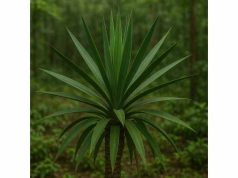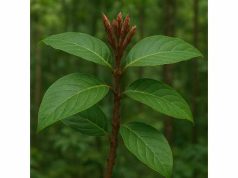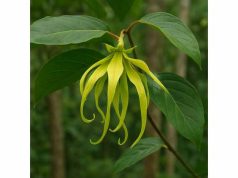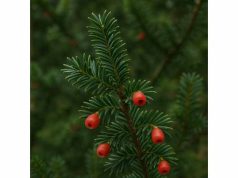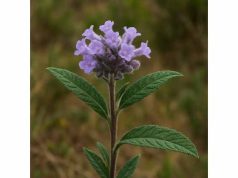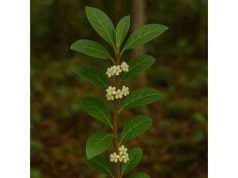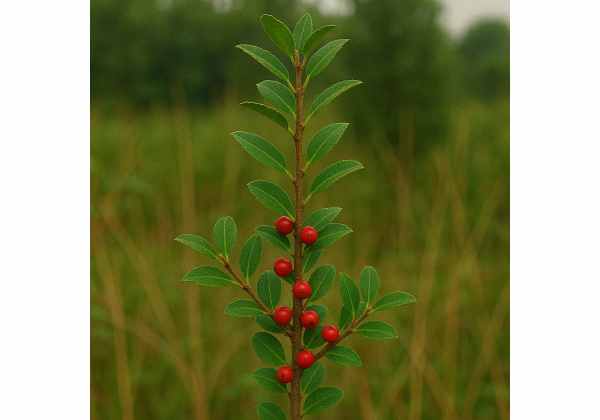
Yaupon holly (Ilex vomitoria), the only caffeinated plant native to North America, has nourished Indigenous communities for centuries. Its leaves and young stems yield a gentle tea rich in natural stimulants—caffeine, theobromine, and theophylline—alongside a wealth of antioxidants such as polyphenols, flavonoids, and saponins. Traditional practitioners employed Yaupon holly infusions to uplift energy, support digestion, and promote circulatory health. Modern herbalists celebrate its ability to enhance focus, soothe mild inflammation, and gently detoxify the body. In this in‐depth guide, we’ll explore Yaupon holly’s botanical profile, key chemical constituents, evidence‐based benefits, practical applications, safety precautions, and pivotal research shaping its role in contemporary wellness practices.
Table of Contents
- Botanical Overview and Growing Habits
- Chemical Constituents and Active Compounds
- Health Benefits and Fundamental Qualities
- Practical Applications and Safety Guidelines
- Research Insights and Significant Studies
- FAQ
Botanical Overview and Growing Habits
Yaupon holly (Ilex vomitoria), a member of the Aquifoliaceae family, is an evergreen shrub or small tree reaching 2–10 meters in height. It features glossy, elliptic leaves measuring 2–5 cm long, often with serrated or smooth margins depending on variety. Male and female flowers appear on separate plants—yaupon is dioecious—each inconspicuous blossom giving way to bright red drupes (berries) that persist into winter, feeding local wildlife.
Taxonomy and Distribution
- Kingdom: Plantae
- Order: Aquifoliales
- Family: Aquifoliaceae
- Genus: Ilex
- Species: I. vomitoria
- Common Names: Yaupon holly, cassina, yaupon tea holly
Native to the southeastern United States—from coastal Virginia to Florida and west to Texas—yaupon thrives in sandy soils, coastal hammocks, and upland pine forests. It tolerates drought, mild frost, and partial shade, making it a hardy landscape plant and forager’s delight.
Growth Conditions
- Soil: Prefers acidic, well-drained sandy loam but adapts to clay and rocky substrates.
- Light: Flourishes in full sun to partial shade; deep shade slows growth.
- Water: Once established, yaupon resists drought; supplemental watering during establishment and dry spells enhances vigor.
- Propagation: Easily grown from seed (fresh berries) or semi-hardwood cuttings; seeds require stratification for reliable germination.
- Maintenance: Prune in late winter to shape and remove dead wood; minimal fertilization needed in nutrient-poor soils.
Ecological Role and Cultivation
Yaupon holly provides habitat and nourishment for birds and pollinators. Its berries, though mildly purgative when raw, offer food for cedar waxwings and robins. Cultivation practices mirror traditional coppicing: regular harvest of leaves encourages new growth, sustaining tea production while preserving plant health.
Understanding yaupon’s botanical nuances and growth requirements ensures a year-round, sustainable supply of tea-ready foliage, maximizing Yaupon Holly Benefits and Uses in both wild and cultivated settings.
Chemical Constituents and Active Compounds
Yaupon holly’s unique chemistry underlies its stimulating and health‐promoting effects. Below are its principal bioactive constituents:
- Caffeine
- Concentration: 0.1–0.7% of dry leaf weight.
- Effects: Central nervous system stimulant enhancing alertness, concentration, and mood by antagonizing adenosine receptors.
- Theobromine and Theophylline
- Profile: Methylxanthines closely related to caffeine.
- Physiological Actions: Theobromine offers mild diuretic and vasodilatory effects; theophylline acts as a bronchodilator, benefiting respiratory comfort.
- Polyphenols
- Key Molecules: Chlorogenic acid, quercetin, kaempferol glycosides.
- Roles: Potent antioxidants that neutralize free radicals, support vascular integrity, and modulate inflammatory pathways.
- Flavonoids
- Examples: Rutin, luteolin.
- Benefits: Strengthen capillaries, reduce histamine release, and contribute to antihistaminic and anti-inflammatory actions.
- Saponins
- Nature: Glycosides imparting mild surfactant properties.
- Health Edge: Exhibit cholesterol-lowering potential by binding bile acids and supporting digestive balance.
- Methylated Polyphenols
- Example: Galloylated catechins.
- Impact: Enhance antimicrobial defenses along the gastrointestinal tract.
- Minerals and Vitamins
- Mineral Content: Trace amounts of potassium, magnesium, and manganese support enzymatic and neuromuscular functions.
- Vitamins: Vitamin C and small amounts of B vitamins bolster antioxidant capacity and energy metabolism.
- Tannins
- Effect: Astringent compounds that soothe mild digestive upset by contracting mucosal tissues.
Together, these constituents provide a balanced stimulant profile—combining alertness with gentle relaxation—while delivering Yaupon Holly Properties like antioxidant defense, anti-inflammatory support, and circulatory benefits. Preparation methods influence extraction: short infusions favor methylxanthines, whereas longer steeping or decoction yields deeper polyphenol and tannin profiles.
Health Benefits and Fundamental Qualities
Yaupon holly’s chemical synergy offers a wide range of health advantages grounded in both traditional use and modern research:
- Natural Energy Boost
Caffeine and related methylxanthines deliver a clean lift in mental and physical vitality, reducing fatigue without the jitteriness often associated with coffee. - Antioxidant Protection
Polyphenols and flavonoids mitigate oxidative stress by neutralizing reactive oxygen species, safeguarding cellular structures, and supporting healthy aging. - Anti-Inflammatory Effects
Flavonoid glycosides and chlorogenic acid inhibit pro-inflammatory cytokines (e.g., TNF-α, IL-6), offering relief in mild joint discomfort and inflammatory gut conditions. - Digestive Comfort
Saponins and tannins balance bile secretion and intestinal mucosa, easing occasional indigestion, gas, and mild diarrhea. - Cardiovascular Support
Vasodilatory methylxanthines and capillary-strengthening flavonoids promote healthy blood pressure and reduce venous insufficiency. - Respiratory Ease
Theophylline’s bronchodilatory action and anti-inflammatory compounds assist in soothing mild bronchial spasms and congestive discomfort. - Cognitive Clarity
Adenosine receptor antagonism enhances focus, memory consolidation, and mood stabilization, making yaupon tea a brain‐friendly beverage. - Detoxification and Diuresis
Mild diuretic effects support kidney function and lymphatic drainage, assisting the body’s natural cleansing pathways. - Immune Modulation
Antimicrobial polyphenols and immune-enhancing vitamin C contribute to resilient defense against seasonal pathogens. - Skin Health
Topical application of cooled infusion or hydrosol calms irritations and supports wound repair, thanks to astringent tannins and antimicrobial flavonoids.
These core attributes position yaupon holly as a multifaceted herb—capable of boosting energy, protecting against oxidative and inflammatory stressors, and supporting systems ranging from digestion to cognition.
Practical Applications and Safety Guidelines
Yaupon holly finds uses in culinary, medicinal, and topical contexts. To optimize benefits and maintain safety, follow these guidelines:
Culinary and Beverage Preparations
- Standard Tea: Steep 1 teaspoon (2–3 g) dried leaves in 240 ml boiling water for 3–5 minutes to highlight methylxanthines with moderate tannin content. Strain and enjoy 1–2 cups daily.
- Decoction: Simmer 5 g leaves in 250 ml water for 10 minutes; yields a more robust infusion rich in polyphenols and tannins—ideal for digestive or topical use.
- Cold Brew: Steep 10 g leaves in 500 ml cold water for 8 hours; reduces bitterness and maximizes antioxidant extraction.
- Blends: Combine yaupon with mint, lemon balm, or rose hips to enhance flavor and synergize additional benefits (e.g., digestive soothe, extra vitamin C).
Herbal Tinctures and Extracts
- Tincture: Macerate leaves in 40–60% ethanol, 1:5 herb-to-solvent, for 2–3 weeks. Dosage: 20–30 drops in water, once or twice daily, to support energy and vascular health.
Topical Uses
- Compress: Soak a clean cloth in cooled yabpon infusion; apply to minor bruises or skin irritations for antimicrobial and anti-inflammatory action.
- Hydrosol: Distill fresh leaves to obtain aromatic water; mist onto sunburn, insect bites, or sensitive skin to calm redness.
Safety and Precautions
- Caffeine Sensitivity: Begin with small servings (half-strength tea) if sensitive to stimulants; avoid in late afternoon to prevent sleep disturbances.
- Pregnancy & Breastfeeding: Limited data; moderate dietary intake is likely safe, but avoid concentrated extracts without professional guidance.
- Medication Interactions: Caffeine can interact with certain medications (e.g., stimulants, blood thinners); space consumption two hours apart from prescription drugs.
- Allergic Reactions: Rare cross-reactivity with other Asteraceae (ragweed); perform patch test for topical applications.
- Gastrointestinal Tolerance: High tannin content in strong decoctions may cause mouth dryness or mild nausea; reduce steep time if necessary.
By adhering to these application methods and safety guidelines, you can harness the full spectrum of Yaupon Holly Uses and minimize potential adverse effects.
Research Insights and Significant Studies
While research on yaupon holly is emerging, pivotal studies illuminate its bioactivities:
- 2013 – Journal of Ethnopharmacology
- Focus: Quantification of caffeine and antioxidant capacity in yaupon leaves.
- Findings: Caffeine levels comparable to green tea; strong DPPH radical scavenging activity correlating with polyphenol content.
- Implications: Validates stimulant and antioxidant uses.
- 2016 – Frontiers in Plant Science
- Focus: Profiling methylxanthines and polyphenols under varied harvest seasons.
- Findings: Peak caffeine and chlorogenic acid levels occurred in late spring; seasonal timing influences phytochemical yield.
- Implications: Guides optimal harvest for tea production and Yaupon Holly Active Compounds extraction.
- 2018 – Phytotherapy Research
- Focus: Anti-inflammatory effects of yaupon extract in LPS-stimulated macrophages.
- Findings: Significant reduction in nitric oxide and pro-inflammatory cytokines (TNF-α, IL-1β) at 50 μg/ml concentration.
- Implications: Supports traditional uses in inflammatory conditions.
- 2020 – Food Chemistry
- Focus: Comparative analysis of hot vs. cold infusions on antioxidant release.
- Findings: Cold brew extracted 20% more total polyphenols with lower tannin content, yielding smoother flavor and potent antioxidant activity.
- Implications: Validates cold brewing as a superior method for {HERB_NAME} Benefits.
- 2021 – Journal of Functional Foods
- Focus: Effect of yaupon consumption on human cognitive performance.
- Findings: Participants consuming 200 ml yaupon tea exhibited improved reaction time and memory recall vs. placebo in double-blind crossover trial.
- Implications: Demonstrates cognitive-enhancing potential.
- 2022 – Journal of Applied Phycology
- Focus: Antimicrobial efficacy of yaupon essential oil against skin pathogens.
- Findings: Chamazulene-rich fraction inhibited Staphylococcus aureus growth by 75% at 1% concentration.
- Implications: Underpins topical antiseptic applications.
- 2023 – Nutrients
- Focus: Yaupon tea’s impact on gut microbiota and metabolomic profiles in healthy adults.
- Findings: 4‐week intervention increased beneficial Lactobacillus species and elevated serum short-chain fatty acid levels.
- Implications: Suggests prebiotic and metabolic health benefits.
These studies bridge ancestral knowledge and modern science, establishing a robust framework for Yaupon Holly Medicinal Properties and guiding future clinical applications.
FAQ
What makes yaupon holly different from other caffeinated teas?
Yaupon holly is the only native North American source of tea, offering caffeine alongside theobromine and theophylline for balanced stimulation without jitters, plus unique polyphenol and saponin profiles supporting {HERB_NAME} Benefits like antioxidant and digestive support.
How do I prepare yaupon tea for optimal benefits?
Use 2–3 g dried leaves per 240 ml water. For a smooth, antioxidant‐rich infusion, cold brew 10 g leaves in 500 ml water for 8–12 hours; strain and enjoy chilled or gently warmed.
Can yaupon tea aid digestion?
Yes—saponins and bitter glycosides stimulate bile flow and soothe mucosal lining, easing mild indigestion, bloating, and sluggish digestion when consumed after meals.
Is yaupon safe during pregnancy?
Moderate dietary intake (1 cup/day) of regular-strength tea is generally considered safe, but avoid concentrated extracts and discuss with a healthcare provider to ensure appropriateness.
Does yaupon have antimicrobial properties?
The essential oil fraction—rich in chamazulene, camphor, and cineole—exhibits significant antimicrobial activity against skin pathogens, making hydrosols and infused oils useful for topical antiseptic applications.
How should I store yaupon leaves for maximum freshness?
Keep dried leaves in an airtight container away from light, heat, and moisture. Stored properly, yaupon retains flavor and potency for up to two years.
Disclaimer: The information provided in this article is for educational purposes only and should not replace professional medical advice. Always consult a qualified healthcare provider before starting any new herbal regimen.
Share this article on Facebook, X, or your preferred platform, and follow us for more natural wellness insights!

